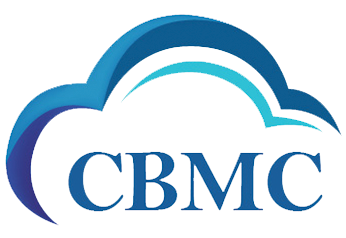As the UAE heads towards a more regulated corporate tax environment, knowing how to get ready for a corporate tax return in UAE is a critical issue for small and large businesses. Now that the new corporate tax law is implemented, 2025 is a critical year in regard to compliance. Whether you’re a small business owner or a finance executive in a large corporation, this corporation tax return guide will help you navigate the filing process, avoid penalties, and stay ahead of the UAE Federal Tax Authority’s (FTA) requirements.
Understanding the UAE Corporate Tax Landscape
Implemented to comply with international tax regulations and lessen the reliance on oil revenues, The UAE Corporate Tax is now imposed for all taxable companies and earning over the exempted amount. From 2025, even the smallest firms will need to file an annual corporate income tax return, beginning with their first financial year that concludes on or after June 1, 2024. Businesses must file corporate tax returns online, via the Emara Tax portal; simplifying the process, considering the digital records need to be accurate.
Key Steps to Prepare for Your Corporate Tax Return in UAE
1. Register for Corporate Tax in Time
The first and most critical step is ensuring that your company is registered before the corporate tax registration deadline in UAE. Businesses that fail to register on time risk administrative penalties and complications during the filing process. The FTA has outlined registration deadlines based on license issuance dates, so it’s essential to check your business’s timeline.
2. Understand Your Taxable Income
To file corporate tax return accurately, businesses must calculate their taxable income as per the UAE Corporate Tax Law. This involves reviewing your financial statements, deducting eligible expenses, and excluding exempt income. The corporate tax return example provided by the FTA helps clarify income categories, such as income from mainland operations, foreign branches, or qualifying free zone income.
3. Maintain Robust Financial Records
Ensuring proper bookkeeping is one of the most important aspects that permits any corporation operating in UAE to submit a correct tax return. Companies are required by law to keep certain records such as profit and loss accounts, balance sheets, and audit reports for a minimum period of seven years. Compliance with the law becomes easier if there is use of cloud-based accounting systems that are commensurate with the financial laws of UAE, promoting efficiency during corporate tax filing in UAE.
4. Use a Corporate Tax Return Checklist
Creating a checklist will help streamline the preparation process. Include items such as:
- Business trade license
- Financial statements
- VAT returns
- Transfer pricing documentation (if applicable)
- Details of foreign-sourced income
- Adjustments for non-deductible expenses
Having these documents ready ensures a more efficient and accurate corporate income tax return filing.
Filing Your Corporate Tax Return Online
The Emara Tax platform, also known as FTA portal, is integrated with the Ministry of Finance and the UAE Central Bank, which means that all entries are monitored, confirmed, and processed through an electronic system. Therefore, businesses are required to submit their corporate tax returns through Emara Tax.
Steps to file:
- Log in to Emara Tax portal
- Complete the corporate tax return (Form CTTR)
- Submit required documents
- Ensure accuracy before submission by verifying, then submit form prior to deadline for submitting corporate tax return
- Make payment for any tax liability incurred
Understanding when your is particularly important as missing it can incur fines. For companies, this specific date is nine months after the conclusion of their financial year.
Avoiding Late Filing Penalties
Corporations must submit their tax returns via the Emara Tax system on time otherwise, penalties for late filing of tax return filings in the UAE are stiff and severely punishing. The FTA has introduced a structured penalty regime which includes:
- AED 10,000 for missing the registration deadline
- AED 500 per month for delayed return submissions
- Fines over AED 5000 for declarations or underpayments
Certified tax agents registered with the FTA are equipped to manage corporate tax return submissions while optimizing your taxation obligations. These professionals guarantee on-time submission and minimize your liability.
Common Mistakes to Avoid
While preparing your corporate tax return in UAE, one should keep in mind to avoid the following pitfalls:
- Believing that your free zone business is granted an exemption by default
- Neglecting to reconcile accounting profits and taxable profits
- Ignoring transfer pricing obligations
- Ignoring arm length rule for specific accounting heads
- Not updating the FTA with changes to business activities
An accurate corporate tax return example reviewed in advance can help you understand what information is typically required and how errors are avoided.
Consider Professional Tax Services
Hence, rather than setting up huge tax management departments that handle everything from registration to filing, people prefer to outsource corporate tax return services and let the experts manage the same from start to finish. These providers can help with:
- Tax assessments
- Error rectification
- Liaising with the FTA
- Handling audits, if required
They will assure you that your filings are accurate and timely, especially if your internal finance team lacks tax experience.
Let CBM Consultants Handle Your Corporate Tax Return
CBM Consultants offers expert corporate tax consulting services in the UAE. Our team of experienced tax professionals provides tailored solutions to help businesses navigate the complexities of corporate taxation and achieve compliance.
Our corporate tax advisory services cover a wide range of areas, including tax planning, compliance, risk management, transfer pricing, arm length rules for specific accounting heads, depreciation policies, and resolving tax-related issues. We work closely with our clients to develop effective strategies to minimize tax liabilities and optimize their tax position.
With our expertise, you can prepare for corporate tax return by organizing your financial records, identifying allowable deductions to reduce tax, accurately calculating taxable income, ensuring timely and compliant filing, and representing you with tax authorities if needed. Let CBM Consultants be your trusted partner and handle the process.
Conclusion
As the year 2025 moves on, a corporate tax return in UAE should be on top of every business’s to-do list in the country. From the proper timing of registration to the appropriate recordkeeping and the corporate tax return due date, compliance is more than a way to avoid penalties but also a way to gain the trust of stakeholders and authorities.
This isn’t simply a regulatory checkbox but a strategic financial move to establish your business’s maturity and long-term staying power. With the right amount of planning, a solid knowledge of the corporation tax return guide, and the best partners, you will be well-prepared to fulfill the needs of UAE Corporate Tax and concentrate on your business operations.


